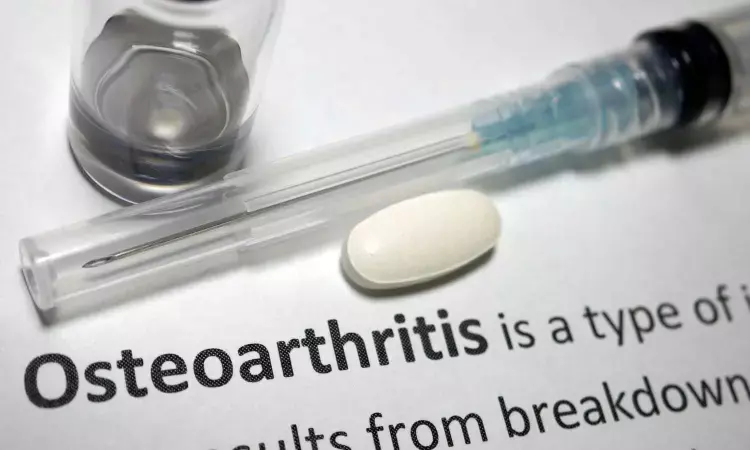- Home
- Medical news & Guidelines
- Anesthesiology
- Cardiology and CTVS
- Critical Care
- Dentistry
- Dermatology
- Diabetes and Endocrinology
- ENT
- Gastroenterology
- Medicine
- Nephrology
- Neurology
- Obstretics-Gynaecology
- Oncology
- Ophthalmology
- Orthopaedics
- Pediatrics-Neonatology
- Psychiatry
- Pulmonology
- Radiology
- Surgery
- Urology
- Laboratory Medicine
- Diet
- Nursing
- Paramedical
- Physiotherapy
- Health news
- Fact Check
- Bone Health Fact Check
- Brain Health Fact Check
- Cancer Related Fact Check
- Child Care Fact Check
- Dental and oral health fact check
- Diabetes and metabolic health fact check
- Diet and Nutrition Fact Check
- Eye and ENT Care Fact Check
- Fitness fact check
- Gut health fact check
- Heart health fact check
- Kidney health fact check
- Medical education fact check
- Men's health fact check
- Respiratory fact check
- Skin and hair care fact check
- Vaccine and Immunization fact check
- Women's health fact check
- AYUSH
- State News
- Andaman and Nicobar Islands
- Andhra Pradesh
- Arunachal Pradesh
- Assam
- Bihar
- Chandigarh
- Chattisgarh
- Dadra and Nagar Haveli
- Daman and Diu
- Delhi
- Goa
- Gujarat
- Haryana
- Himachal Pradesh
- Jammu & Kashmir
- Jharkhand
- Karnataka
- Kerala
- Ladakh
- Lakshadweep
- Madhya Pradesh
- Maharashtra
- Manipur
- Meghalaya
- Mizoram
- Nagaland
- Odisha
- Puducherry
- Punjab
- Rajasthan
- Sikkim
- Tamil Nadu
- Telangana
- Tripura
- Uttar Pradesh
- Uttrakhand
- West Bengal
- Medical Education
- Industry
Reverse Total Shoulder Replacement alternative option for end-stage shoulder arthritis: Study

Researchers found that for patients aged 60 years or older with osteoarthritis and intact rotator cuff tendons, reverse total shoulder replacement (RTSR) is comparable to anatomical total shoulder replacement (TSR). Both procedures showed similar outcomes in terms of revision surgery, adverse events, reoperations, prolonged hospital stay, and lifetime healthcare costs. This study was published in the BMJ journal by Valsamis E. M. and colleagues.
National research priorities led to a study comparing the risk-benefit and costs associated with RTSR and TSR in patients undergoing elective primary shoulder replacement for osteoarthritis. Utilizing data from the National Joint Registry and Hospital Episode Statistics for England from 2012 to 2020, this population-based cohort study aimed to address the need for evidence-based guidance in selecting the appropriate surgical intervention for patients with osteoarthritis.
The key findings of the study were as follows:
• The study included 7124 RTSR or TSR procedures, with 126 revisions in the propensity score matched population and 12,968 procedures, with 294 revisions in the inverse probability of treatment weighted population.
• RTSR showed a reduced hazard ratio of revision in the first three years and a reduced relative risk of reoperations at 12 months compared to TSR.
• However, no statistically significant and clinically important differences were found in terms of long-term revision surgery, serious adverse events, reoperations, prolonged hospital stay, or lifetime healthcare costs between RTSR and TSR.
The study utilized propensity score matching and inverse probability of treatment weighting to balance the study groups. Despite a significant difference in the risk profiles of revision surgery over time, outcomes such as serious adverse events, reoperations, prolonged hospital stay, and lifetime healthcare costs were similar between RTSR and TSR. The findings remained consistent after weighting, indicating that RTSR is an acceptable alternative to TSR for patients aged 60 years or older with osteoarthritis and intact rotator cuff tendons.
In conclusion, this study's results provide reassurance that RTSR is a viable option for patients undergoing elective primary shoulder replacement for osteoarthritis. Despite differences in the risk of revision surgery over time, both RTSR and TSR offer comparable long-term outcomes in terms of adverse events, reoperations, hospital stay, and healthcare costs. These findings support the consideration of RTSR as an alternative to TSR in eligible patients, providing valuable insights for clinical decision-making in the management of osteoarthritis-related shoulder conditions.
Reference:
Dr Kamal Kant Kohli-MBBS, DTCD- a chest specialist with more than 30 years of practice and a flair for writing clinical articles, Dr Kamal Kant Kohli joined Medical Dialogues as a Chief Editor of Medical News. Besides writing articles, as an editor, he proofreads and verifies all the medical content published on Medical Dialogues including those coming from journals, studies,medical conferences,guidelines etc. Email: drkohli@medicaldialogues.in. Contact no. 011-43720751


